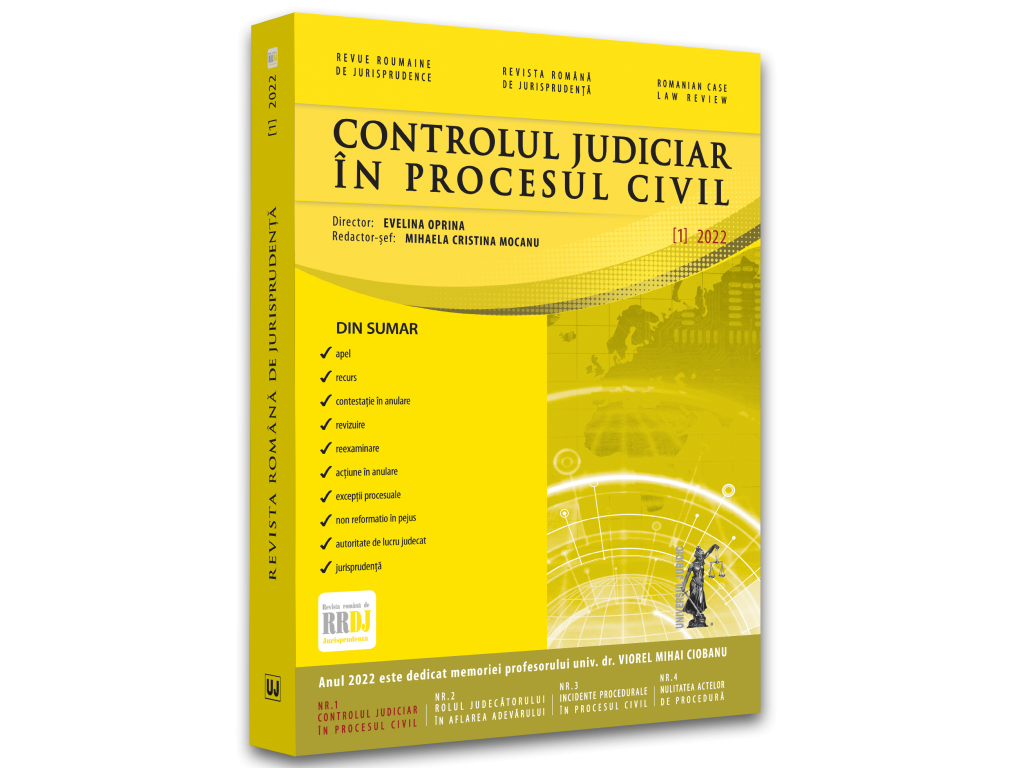Second appeal against the voluntary suspension order. Analysis of the appropriateness of the measure in the extraordinary means of challenge
JURISPRUDENŢĂ COMENTATĂ ŞI ADNOTATĂ
Abstract
Optional legal or judicial suspension is left to the discretion of the court, which is called upon to ensure a fair balance between the interests of the persons in dispute. The court must verify not only the existence as such of the prejudicial issue whose resolution could have a decisive influence on the resolution of the case, but also the existence of minimum elements capable of outlining the defining relevance of the criminal proceedings in this case.
The insurer's participation in a legal relationship concerning an action for damages is not based on a direct, personal obligation towards the plaintiffs resulting from a legal act or a wrongful act of its own, but as a result of the status acquired under the compulsory motor third party liability insurance contract concluded with the owner of the motor vehicle involved in the accident.
The special insurance legislation sets out, within unequivocal limits, the conditions of the insurer's civil liability, making the payment of compensation caused by the accident conditional on the fault of the driver.
The civil court cannot verify the conditions of the insurer's civil liability until the completion of the criminal case, in which the total or partial fault of the driver of the insured motor vehicle is established, which is the determining factor in this case. Only if a final judgment of acquittal or termination of the criminal proceedings is handed down can the civil court examine the existence of the damage or the guilt of the offender.








